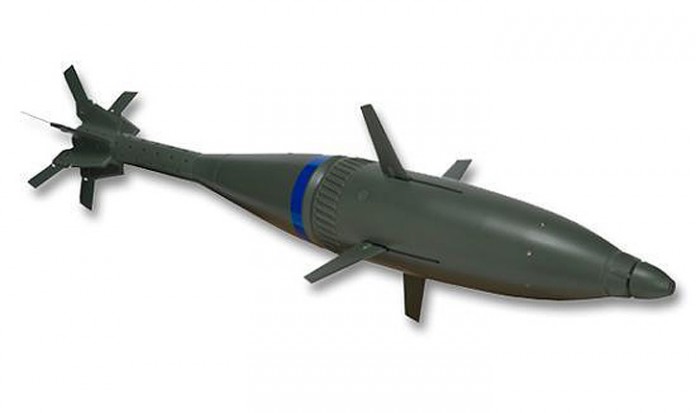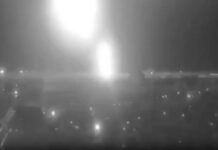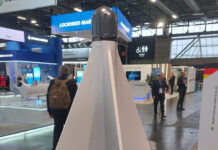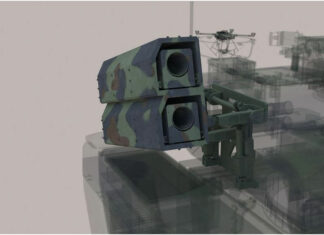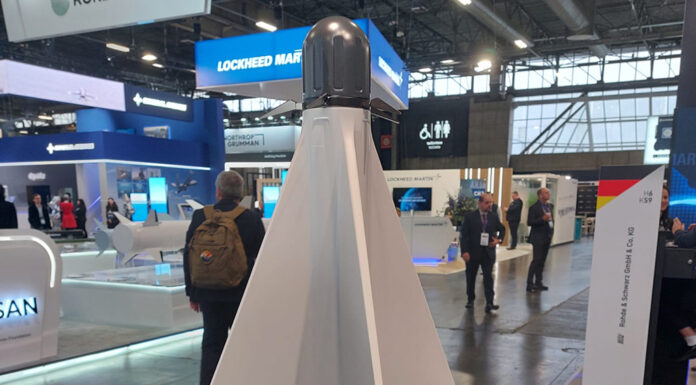Raytheon Missile systems will provide precision guided mortar bombs to the US Marine Corps, under a contract worth $98 million awarded this week by the Pentagon. The contract with the U.S. Marine Corps has a maximum 60-month effective period, with five 12-month ordering periods. Raytheon’s PERM team has partnered with Israeli Military Industries to provide the weapon systems. As such, 39% of the work will be performed in Israel by IMI and its subcontractors. The Marine Corps plans to field 3,113 rounds beginning in 2018.
 PERM gives a combat commander the ability to destroy enemy targets at longer ranges using fewer rounds. A typical mortar round travels about seven to eight kilometers. The PERM rounds can reach distances up to 16 kilometers. The basic version selected by the corps is GPS guided with accuracy of 10 meters(industry officials place it within 2 meters). PERM also increases the lethality of the 120mm mortar by as much as 250 percent. In the future Raytheon plans to add semi-active laser guidance to its PERM rounds, enabling mortar teams to hit moving targets designated by forward or airborne target acquisition teams.
PERM gives a combat commander the ability to destroy enemy targets at longer ranges using fewer rounds. A typical mortar round travels about seven to eight kilometers. The PERM rounds can reach distances up to 16 kilometers. The basic version selected by the corps is GPS guided with accuracy of 10 meters(industry officials place it within 2 meters). PERM also increases the lethality of the 120mm mortar by as much as 250 percent. In the future Raytheon plans to add semi-active laser guidance to its PERM rounds, enabling mortar teams to hit moving targets designated by forward or airborne target acquisition teams.
The new GPS guided munitions will enable the corps’ M327 rifled 120mm mortar units called ‘Expeditionary Fire Support Systems’ (EFSS) to double the range they can engage targets, and enable those units to hit their intended targets with maximum accuracy and efficiency. EFSS consists of two Internally Transportable-Light Strike Vehicles carrying a mortar tube and ammunition supply that can be moved as a single package in the belly of an MV-22B Osprey or slung under a CH-53E Super Stallion.
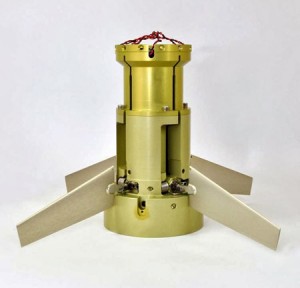
[ismember]
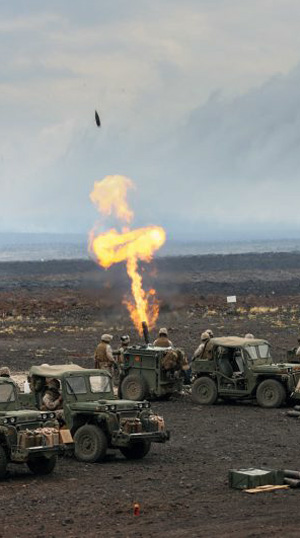
Two teams competed for the US Marine Corps contract – Raytheon, teamed with Israel Military Industries (IMI) and ATK teamed with General Dynamics Ordnance Technologies Systems (GD-OTS). The ATK team proposed a modification to existing bombs, adding a guidance kit replacing the fuse and a new tail section. Raytheon’s solution that was selected by the Marines implements a purpose-built precision bomb, similar to the company’s Excalibur guided artillery projectile.[/ismember]
In a recent test series PERM munitions were employed in field tests in mountainous firing range, validating the munitions’ maximum and minimum range performance, with demonstrated accuracy levels exceeding the services’ requirements. A unique capability, provided by the efficient aerodynamic design combining tail fins and flaps in the mid-body, enables complex trajectory shaping techniques enabling the round to hit target in steep reverse slopes in mountainous terrain – a task that is often impossible to accomplish by other projectiles, using ballistic trajectory.
These smart munitions comprise IMI’s ‘Pure Heart’ as their ‘brain’ that matches a powerful digital processor and guidance systems, with Raytheon’s GPS based navigation solution, all packed in a compact, lightweight case designed to endure extremely high loads.
[nonmember]
This is an 431 word excerpt of the 1071 word article available to Defense-Update members.
Join now to read the full version
[/nonmember]
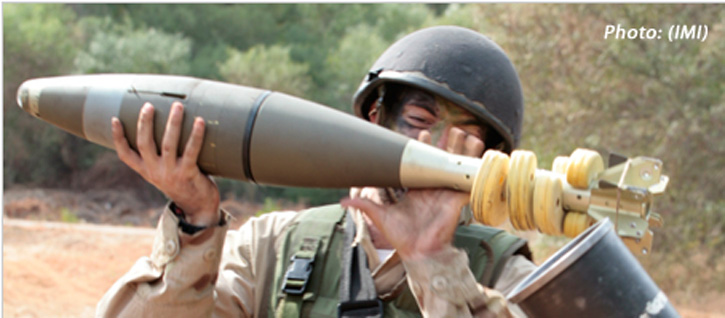
[ismember]While PERM is primarily being developed for the Marine Corps, Raytheon claim the round is also able to fire from an Army smoothbore mortar tube. IMI has an ongoing development program for a Guided Mortar Munition (GMM) – precision mortar round designed for the Israel Defense Forces’ 120mm smoothbore mortar units. The Israeli design uses K6-Charge 5 propellant to fire the guided round to a ballistic trajectory of 7.5 kilometers. At the apogee the GMM will open its fins and glide to extend the rage to more than 9 kilometers, hitting its intended target within less than 10 meters. Optional laser guidance increases accuracy to 1.5 meters.
PERM is the currently U.S. Department of Defense’s only program for precision mortars. The US Army has already using the Accelerated Precision Mortar Initiative (APMI), 5,480 were fielded in 2012 as an interim solution for operations in Afghanistan. While proving effective and accurate, the lethality demonstrated by these XM395 rounds was lower than expected. Army researchers at the Army Armament Research Development and Engineering Center (ARDEC) at Picatinny have been working on a ‘Guided Enhanced Fragmentation Mortar’ (GEFM) bomb designed to increase the lethality of such weapons.
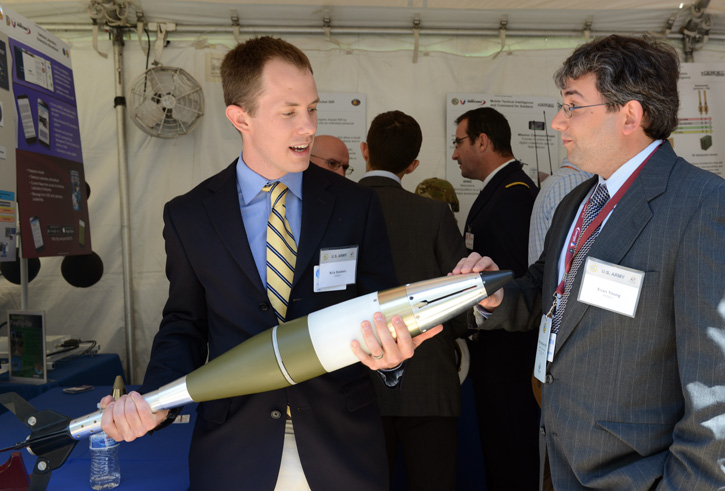
In May 2015 the Army released a formal request for information for the High Explosive Guided Mortar (HEGM). The Army plans to employ the knowhow gained through the GEFM program as it embarks on a future HEGM program of record, seeking a precision-guided mortar that will improve on the APMI in areas like range, lethality, and reliability.
If completed successfully, the HEGM could be fielded by 2019-20. The Army requires HEGM to maintain the current range (6.5 km) of mortar fires, or extend the range up to 15 km. (this is an objective, non mandatory goal for future developers). An accuracy of 10 meters is mandatory, with an objective goal CEP reduced to 1 meter. Another challenging objective requirement is the ability to hit a target moving at a speed of 15mph, likely requiring a laser-guidance solution. Its Global Positioning System (GPS) should be able to function in jammed environment with minimal CEP degradation. The Army would like to see HEGM continue to operate even in a GPS denied environment (Objective, non mandatory goal).
The Engineering & Manufacturing Development (EMD) phase for the HEGM is anticipated to be a total of 36 months beginning in FY17. It is anticipated that the initial production phase will consist of 3 years of production starting in FY20. The production estimate total is 15,000 cartridges. A production ramp up to approximately 5,000 cartridges per year is planned.
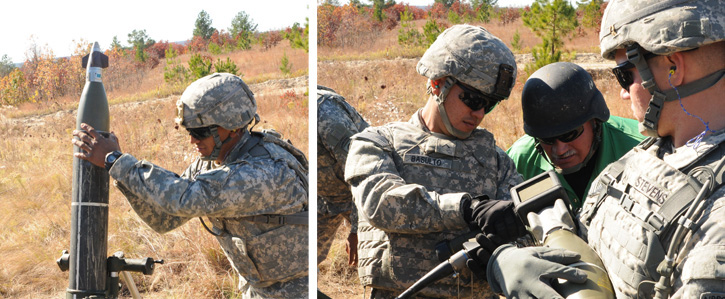
[/ismember]
According to Marine Corps sources the program came in two months ahead of schedule and 33 percent under budget, at a projected cost of $18,000 per round. The first rounds will be delivered in mid-2018, with a total purchase of 3,113 rounds over five years.

